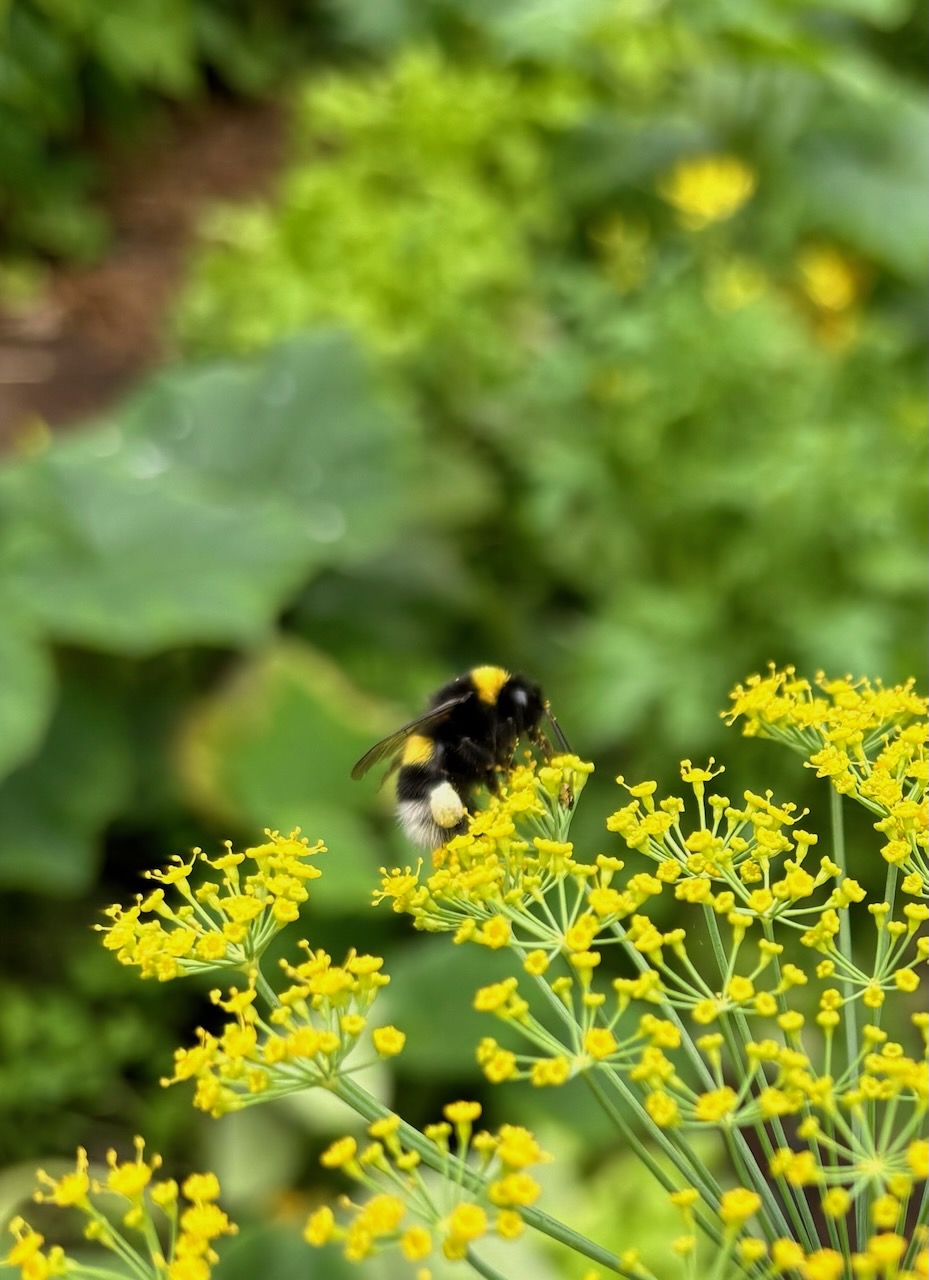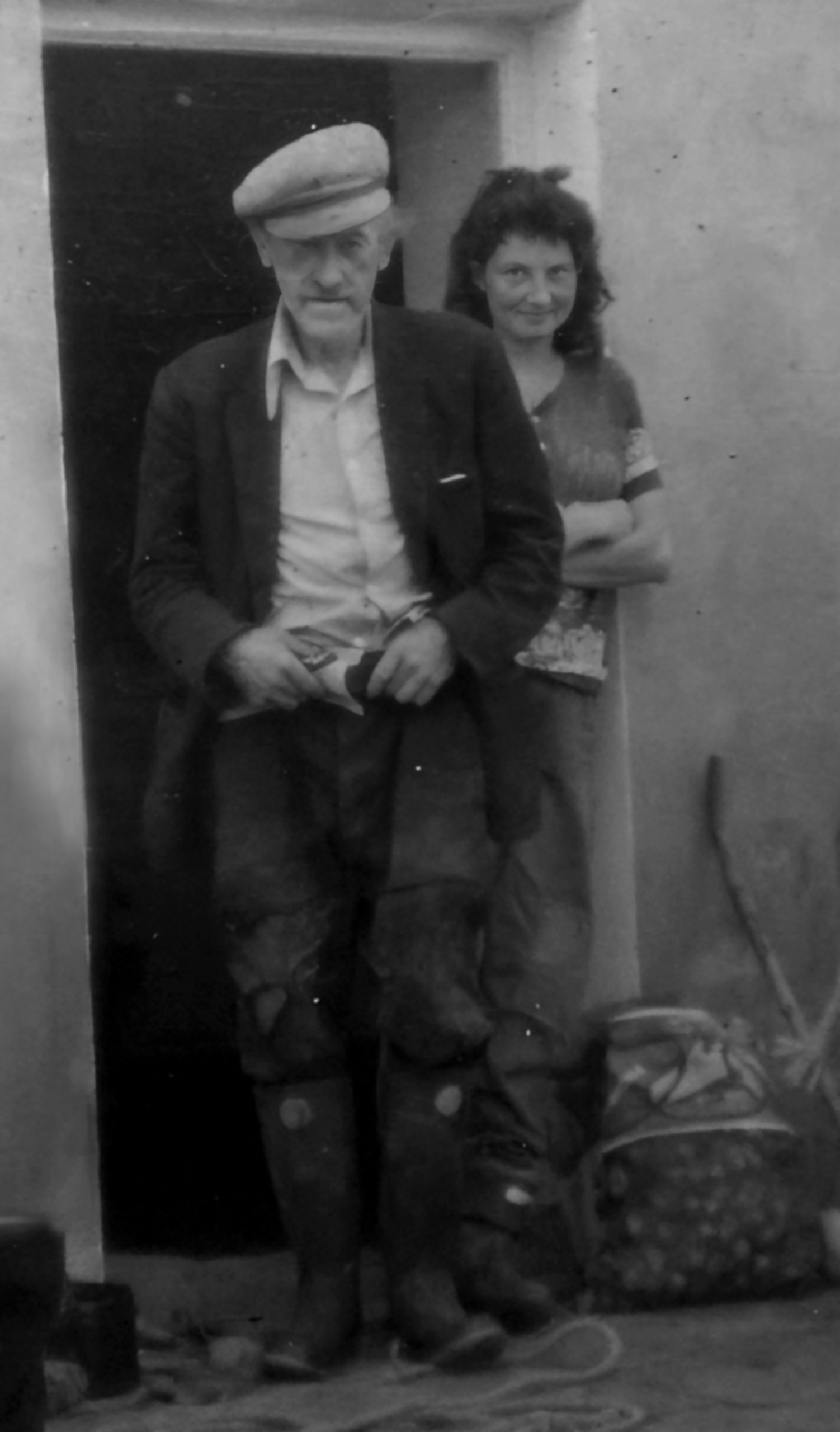Our stories – whether our own individual narratives, our collective story and that of the farm are all intersected by our shared interests – exploring our embodied experience through yoga, our passion in all aspects of food, our deep relationship to horses, our clear intention to live as sustainably as we can.
Macalla Farm encourages mindful living in a place where land, body, and community are in resonance.
Ciara Cullen arrived on Clare Island in the 1980s, an American-born writer and sociologist who found herself rooted in soil, sea, and stillness. She had lived with Michael Joe O’Malley in the 1980’s until his death in 1989, and subsequently inherited the farm from him.
Construction of the timber house was completed in 2004, featuring a light-filled yoga room with sweeping views of Croagh Patrick and a spacious kitchen designed for cooking courses. This purpose-built space enabled the retreat centre to expand and host courses and invite teachers from around the world.
Over the past two decades, Ciara’s work—alongside Christophe Mouze—shaped Macalla Farm into a unique sanctuary. Together, they built a practice rooted in sustainability, mindfulness, and connection to the land. With their now grown children, Theo and Maude, Macalla Farm and the Stone Barn Café continue to be a place of learning, nourishment, and retreat — where visitors can reconnect with themselves, the earth, and the simple rhythms of island life.
The yoga teaching has evolved from the early ashtanga vinyasa tradition into Sati Yoga — a considered, balanced practice that integrates asana, pranayama, meditation, and ethical inquiry.
In parallel, the work with horses developed into a mindful exchange between human and animal, and cultivating the food grown and shared has became a cornerstone of her life and teaching.
Today, meditation and mindfulness serve as the unifying principles of Macalla Farm. Ciara continues to welcome visitors, students, practitioners, and volunteers to this corner of the island, offering experience and guidance in yoga, sustainable living, and contemplative practice.

MACALLA FARM Ethos
At Macalla Farm, we try to live as sustainably as we can. Living this way is not a burden nor a temporary lifestyle choice, but simply the only way that makes sense, given the understanding we have of our place in the world.
Living on an island has a way of focusing the mind: because of the extra effort to get stuff out here (and subsequently the effort of getting rid of what we no longer want), we are especially mindful of what and how much we consume.
Solar panels/stoves heat our water and Eirtricity provides our electricity. We used natural building methods and eco-friendly materials including hemp/lime and cellulose insulation in the buildings. They are heated solely by wood, some of which we cut ourselves from our woodland. All dry goods and non-perishable ingredients are 95% organic (and fairtrade if possible), and are bought in bulk a few times a year to lessen packaging.
We produce 99% of our vegetables, all our jams, chutneys, pickles and kimchis, some of our juices and drinks and all our bread. During the milking season, we make our own yoghurt and soft and hard cheese. Our bee hives provide us with honey and the ducks give us eggs. We also produce high quality compost, liquid feed for the garden and save seeds for sowing.
All biodegradeable waste goes to compost, cardboard, newspaper is used for mulching along with bracken, molinia and seaweed. Bottles and jars are re-used for preserving our surplus from the garden. We aim to reduce our non-recycleable waste which must be sent to landfill on the mainland.
We have planted over 3000 deciduous trees around the farm and have protected the woodland from over-grazing. The increase in biodiversity is palpable: the dawn chorus at Macalla Farm has become a true delight!


Michael Joe O’Malley
The former owner of what is now Macalla Farm, Michael Joe lived his entire life on Clare Island, save for a year when he worked on building sites in England. He had no formal education past primary school but his insatiable curiosity and openness to ideas resulted in a formidable intellect and keenly analytical mind.
He was an autodidact and his impressive library reflected the vast scope of his interests and knowledge. In addition to his extensive collection of classic literature and first editions of many Irish novels and books of poetry, one could find on his dusty, makeshift shelves an early translation of the yoga sutras of Patanjali as well as a copy of Lao Tse’s Tao Te Ching sitting alongside the works of Marx, Wittgenstein, Beckett and Kavanagh.
In the introduction to his (unpublished) Psychological Treatise, written in the late 1960’s, he described himself with his distinctive ascerbic wit, as a “self-styled poet, philosopher, anthropologist, sociologist, ecologist, ethnologist, psychologist, codologist” who after leaving school at the age of 12 “has been fisherman, shepherd, veterinary surgeon, farmer, lighthouse keeper (at present does light housekeeping work in his hovel) rate-collector and wellington-fixer.”
Among his close friends were his cousin, the painter Tony O’Malley and the independent film maker and writer Bob Quinn. His island cottage was truly an open house: accommodating writers, artists, travellers, hippies, lost souls and seekers of truth. Long before the notion of wwoofing was invented, people from all manner of backgrounds and international origins found themselves helping at the farm, participating in an approach to life which emphasized hard physical work alongside equally valued intellectual effort. Ciara was the last to arrive on the scene in the early 1980’s and stayed with Michael for eight years until his death in 1989.
He possessed a remarkably open mind, choosing to see the opportunity and accessibility that an island symbolically affords (being approachable from all sides) rather than its isolation. What he would have made of the internet had he lived to use it! But more than anything else, Michael’s strong sense of self was connected to the earth beneath his feet, allowing him to access what he described as the ‘inviolable core of solitude’ at the centre of his being.
As per his wishes, he was buried on Macalla, the hill above his house. He remains a potent inspiration for us, an echo and ever present sounding board for those of us who walk in his footsteps.
We feel that he would approve of how Macalla Farm has developed.
_________________________________________
Michael Joe O Malley
December 1914 – August 1989
